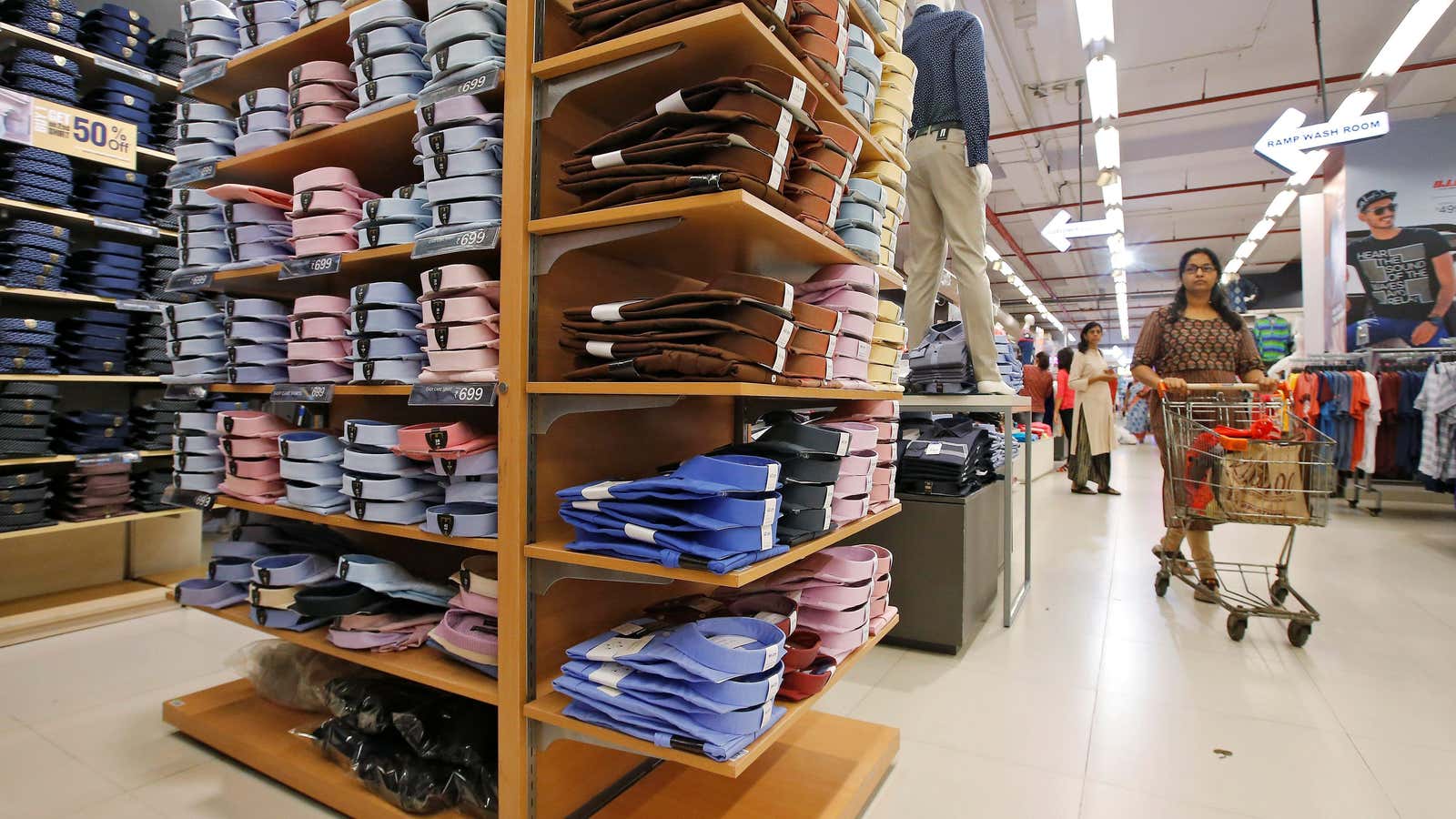Many of India’s small and niche e-commerce companies have weathered the coronavirus lockdown storm with a simple strategy: a post-lockdown promise.
For almost a month since March 25, India had barred e-commerce deliveries, except those of essential items like groceries. On May 2, India opened up e-commerce deliveries of non-essential items in green and orange zones, areas relatively less affected by Covid-19. Over 130 districts in the country still fall in the worst-hit red zone.
During this lockdown month, firms selling only non-essential goods like clothes or cosmetics or furniture were, thus, in a state of suspension. Their mounting losses and employee costs threatened to sink them.
Yet, some firms like souvenir and furniture seller Chumbak, fashion site Myntra, and beauty e-tailer Nykaa continued to accept orders promising “delivery after lockdown.”
“We have been getting approx 40% of our normal orders and these will all be immediately delivered post the lockdown,” Nohar Nath, founder and CEO of fashion re-commerce site Kiabza, told Quartz. “It would always be a relief for any stakeholder to see some orders during a lean phase rather than zero orders.” Re-commerce sites are those that allow people to buy and sell pre-owned items.
This strategy of post-lockdown deliveries allowed these companies to show investors that their businesses were still alive and helped them keep their logistics ready to hit the ground running once the country reopened.
If anything, some such brands attracted even more interest than usual during the shutdown.
“We have received quite a lot of pre-orders than usual during the time of this pandemic,” said Megha Asher, co-founder of online organic skincare brand Juicy Chemistry. “People are ordering the products in advance and probably preparing themselves for another lockdown if at all it happens.”
Meanwhile, the definition of essentials also was evolving rapidly.
Earlier in the lockdown, it meant mostly groceries. However, by week five, customers Quartz spoke to shared a range of needs, from replacing a broken stovetop to buying air conditioners to getting new loungewear for work-from-home.
“Indians are running low on supplies of several items, including laptops, mobile phones and accessories, computer hardware, books, stationery, and even basic summer wear,” said Srinivas Mothey, senior vice-president at Paytm Mall.
Snapdeal, which had been taking pre-orders for non-essentials during the lockdown, had hundreds of thousands of pre-orders to fulfill, the company spokesperson said. This included apparels, trimmers, wax strips, mosquito rackets, pressure cookers, chargers, stationery, toys, and fitness bands.
Kiabza’s Nath expects more consumers to shop online in order to maintain social distancing even after the lockdown is lifted. “In the short-term, business is expected to be a bit slow, but things should stabilise in a few months, and thereafter we expect significant growth in traffic and sales,” he said.
